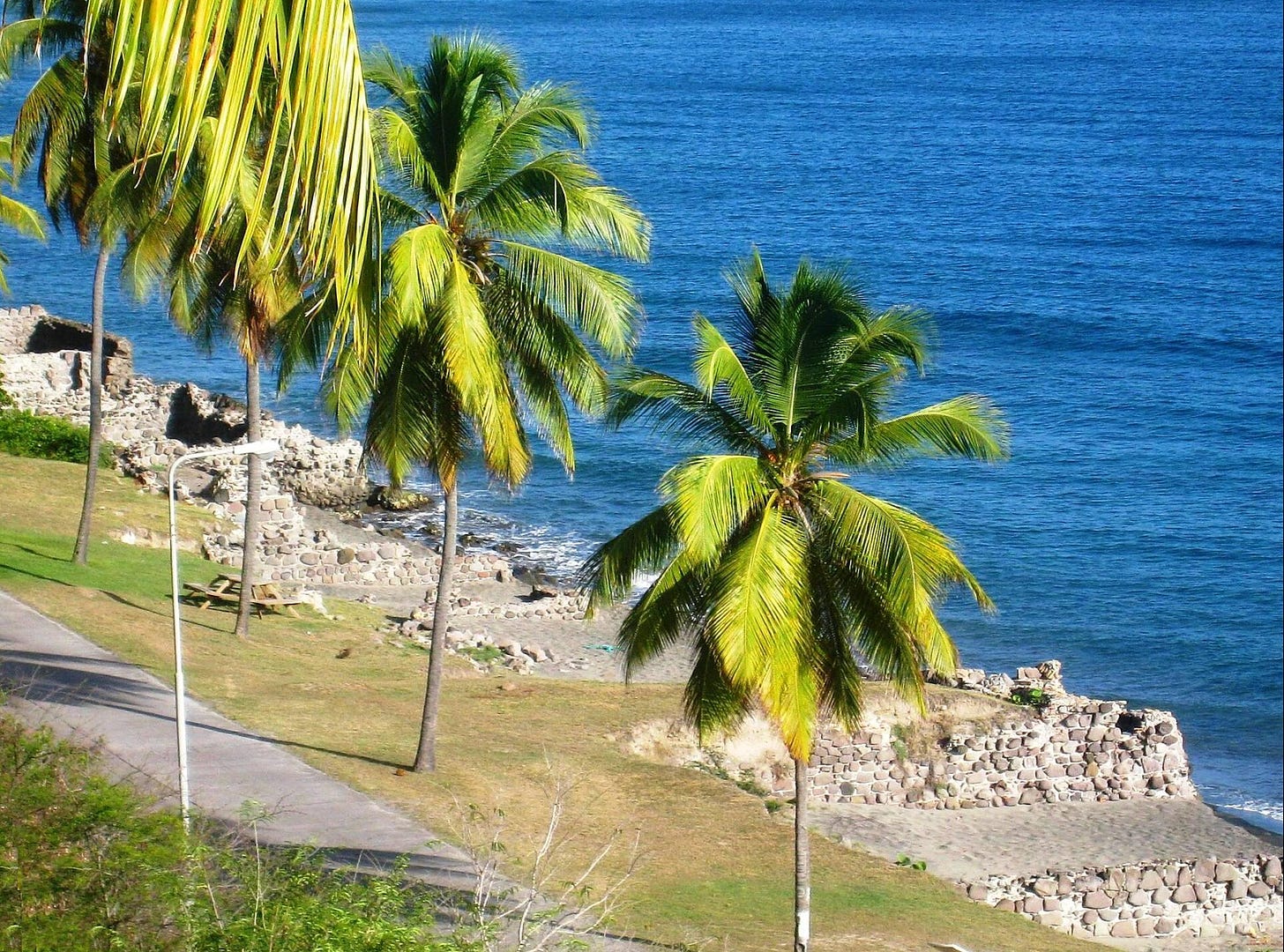Great Hurricane of 1780 Remains the Worst
The deadliest hurricane in history, with 22,000 dead, happened before the internal combustion engine was invented.
Climate Change Racketeers have incentivized the media to blare the talking point that human-induced climate change has made Atlantic tropical storms more powerful than they were in the past.
Sediment studies indicate that major hurricanes have been blasting through the Atlantic for centuries, and were especially strong during the Medieval Warm Period (MWP), also known as the Medieval Climate Optimum or the Medieval Climatic Anomaly—a time of warm climate in the North Atlantic region that lasted from c. 950 to c. 1250.
Christopher Columbus recorded two “violent hurricanes” in the years 1494 and 1495, the latter sinking three of his ships anchored in La Isabela harbor (now the Dominican Republic). Major hurricanes were a headache for the Spanish Treasure Fleet, sinking multiple treasure-laden galleons in the years 1622, 1715, 1733 and 1750. I grew up dreaming of finding one of these treasures in the Florida Keys. Mel Fisher beat me to it when he found the Atocha that sank in the Keys in the hurricane of 1622.
By far the deadliest hurricane in history was the Great Hurricane of 1780, which is estimated to have killed 22,000. Wikipedia provides a decent, succinct description:
The Great Hurricane of 1780 was the deadliest Atlantic hurricane on record, as well as the deadliest tropical cyclone in the Western Hemisphere. An estimated 22,000 people died throughout the Lesser Antilles when the storm passed through the islands from October 10 to October 16. Specifics on the hurricane's track and strength are unknown, as the official Atlantic hurricane database only goes back to 1851.
The hurricane struck Barbados likely as a Category 5 hurricane, with at least one estimate of wind gusts as high as 200 mph before moving past Martinique, Saint Lucia, and Sint Eustatius, and causing thousands of deaths on those islands. Coming in the midst of the American Revolution, the storm caused heavy losses to the British fleet contesting for control of the area, significantly weakening British control over the Atlantic. The hurricane later passed near Puerto Rico and over the eastern portion of Hispaniola, causing heavy damage near the coastlines. It ultimately turned to the northeast and was last observed on October 20 southeast of Atlantic Canada.
The death toll from the Great Hurricane alone exceeds that of many entire decades of Atlantic hurricanes.
On a technical note: wind strength on Barbados was estimated from damage to solid structures and debris such as straw that was found embedded in tree trunks. Seasoned naval officers also recorded their observations of the storm’s stupendous strength.
Studying history gives us a sense of perspective about the human condition. Understanding the calamities, tragedies, and errors of the past equips us to recognize when people in positions authority are distorting reality in the pursuit of their selfish interests.






Thanks for making this excellent point, John Leake. The climate perps apparently do not like to study history, but rather spend their time daydreaming about becoming the opposite sex, inventing new diseases, or molesting underage children. Changing historical records is what they do, and faking data using "woke" psuedo-scientists...(like Fisman @ U of T) is common practice these days to try to convince us that we need desperately to give them all our money and treasure so that they can save us from plant food (CO2)...It's getting a little stale already. I was smiling while reading your presentation today...nice piece of compiling an impressive collage of interesting and relevant facts. I believe the jury finds in your favor...again. Well done.
That was quite interesting in pointing that weather history event out. You're right, that alone proves that there is no correlation between industry and the earth getting warmer. Frankly I'm much more concerned about crop dusting. And that's coming from an aviator !! I would NEVER EVER fly a crop duster for many reasons. All that crap going into the ground water and streams and rivers. I'm really excited about the "homestead" movement and the growth of small organic family run farms. Ironically, many in this niche community are based in Western NC and Eastern Tenn that just got hit really hard. Once every 250 years is not too bad. Usually this region is out of that kind of danger because they are on average about 2000 feet above sea level. The other thing that should be looked at is how "we" use dams. In 1780 there were no dams. Now we have dams all over. All I'm saying is ask the question. The bottom line is you should always try to learn from bad stuff and if mistakes were made, try to correct them.